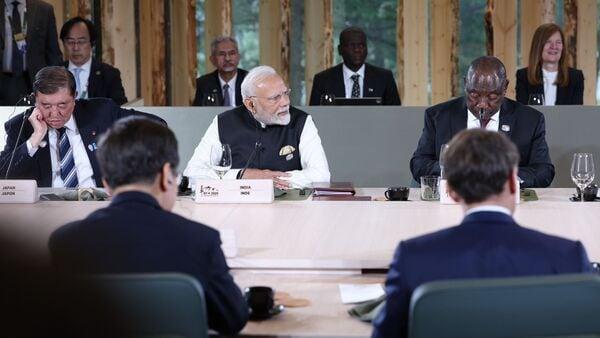G7 Summit Sees Diplomatic Breakthrough Between India and Canada
At the G7 Summit in Apulia, Italy, a significant diplomatic development unfolded as India and Canada agreed to restore full diplomatic relations by reinstating their respective high commissioners. The move signals a thaw in relations after months of strained bilateral ties sparked by the June 2023 killing of Sikh separatist leader Hardeep Singh Nijjar in British Columbia.
What Led to the Diplomatic Rift
The diplomatic standoff began when Canadian Prime Minister Justin Trudeau alleged that Indian agents may have had a hand in Nijjar’s killing, citing intelligence shared with the Canadian security agencies. New Delhi firmly denied the allegations, calling them “absurd and motivated.” The tension escalated to diplomatic expulsions, with both countries recalling senior diplomats, freezing talks, and tightening visa processes.
Reinstating High Commissioners
In a surprise announcement made during the G7 Summit, India and Canada agreed to reappoint their high commissioners. This marks a critical first step in reestablishing normal diplomatic channels. “We have taken the decision to reinstate our high commissioners. This reflects a shared commitment to restore and strengthen communication between our governments,” an official familiar with the matter said.
Focus on Constructive Engagement
While both sides emphasized the need to rebuild trust, officials maintained that serious differences remain. Canada continues to press India to cooperate fully with the ongoing investigation into Nijjar’s death. Prime Minister Trudeau was questioned at the summit about whether he discussed the case with Prime Minister Narendra Modi. Although he did not provide direct answers, his body language seemed to suggest the issue remains unresolved.
Modi’s Firm Stance on Terrorism
Prime Minister Narendra Modi used his G7 platform to issue a broader message on international counter-terrorism cooperation. “It is unfortunate that some countries continue to support or overlook terrorism for political leverage. This double standard must end,” Modi stated during one of the sessions. Without directly naming Canada, many saw the comments as a veiled criticism aimed at Ottawa.
Modi’s remarks were seen in the context of India’s growing concern over the activities of pro-Khalistan elements in Canada. India has consistently accused certain factions in Canada of supporting separatist movements and allowing radicalization of its diaspora.
Global Implications
The diplomatic reset between the two countries is expected to improve Indo-Canadian relations in trade, education, and technology collaboration. Canada is home to over 800,000 people of Indian origin, and the freezing of visas had disrupted family visits, academic exchanges, and business travel. Industry and diaspora groups have welcomed the normalization.
Mark Carney, Canada’s former central bank governor and current UN envoy for climate finance, commented after a bilateral meeting with Modi, saying, “Strong India-Canada relations are essential not just for our communities but for global democratic partnerships. We hope both nations continue to find common ground.”
Public and Political Reactions
The announcement drew cautious optimism from Canadian opposition leaders and Indian political figures. Experts believe that while diplomatic representation is being restored, deeper repair will require transparent dialogue concerning the Nijjar case and broader concerns about sovereignty and extremism.
- Jagmeet Singh, leader of Canada’s New Democratic Party (NDP), expressed continued concern over foreign interference and called for a full investigation.
- Indian External Affairs Ministry reiterated that India remains open to cooperation based on mutual respect and non-interference in internal matters.
Political analysts say this move is as much about optics as it is about restoring practical diplomatic functionality. “Reinstating high commissioners is a symbolic gesture signaling intent to engage — but trust will take much longer to rebuild,” said Dr. Ruchi Sharma, professor of international relations at JNU.
Looking Ahead: A Path to Reconciliation?
While the reinstatement of high commissioners is a significant step, both sides remain cautious in fully normalizing ties. Talks on trade and security cooperation, including the long-stalled Comprehensive Economic Partnership Agreement (CEPA), could be revived in the coming months should the environment remain conducive.
For now, the return to standard diplomatic presence is being viewed as a pragmatic decision to prevent further deterioration. It demonstrates a recognition on both sides that isolating each other benefits no one, especially when global cooperation is essential to tackle shared challenges ranging from climate change to geo-economic instability.
Conclusion
The G7 platform has proven pivotal not just for economic and climate discussions, but also for quiet diplomatic reconciliation. The decision by India and Canada to move past a fraught year of geopolitical tension by reinstating high commissioners sets the stage for cautious but necessary engagement. Time will tell if this gesture is a turning point or merely a reset with limited depth.

